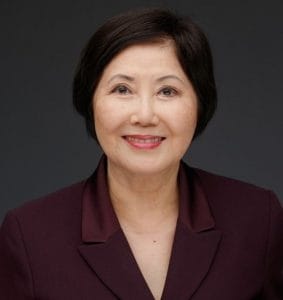Born in Guangzhou, China, Wong Yee Ching fled to Hong Kong with her family after the Communist revolution. She excelled there in high school science, and was urged by her teachers to go to school in the United States. Teachers also suggested she change her name to something more American, so her father dubbed her Flossie — after a massive typhoon in the area. After just three years at the University of California, Los Angeles, she received her B.S. in bacteriology (cum laude), and four years later earned her PhD in molecular biology, also from UCLA.

She accepted a position at the National Cancer Institute in Maryland, where she researched retroviruses. There, Wong-Staal became “one of the giants in the fight against HIV/AIDS,” said vice chancellor of health sciences at U.C. San Diego, Dr. David Brenner. “She worked with Dr. Robert Gallo to make the fundamental insights that revealed the cause of AIDS, which helped lead to the first drug therapies.” Gallo, Wong-Staal’s boss at NCI, says she was “one of the best scientists I ever worked with. Without her, loads of stuff in our lab would never have gotten done in the way they happened or with the same speed. She was outstanding, and I will never forget her.” So outstanding that the Institute for Scientific Information named Wong-Staal the top woman scientist of the 1980s. In 1994, she was named as chairman of UCSD’s newly created Center for AIDS Research, and in 2007 the London Daily Telegraph ranked her as No. 32 of the “Top 100 Living Geniuses”. After retiring from UCSD in 2002, she took over as Chief Scientific Officer at the biopharmaceutical company Immusol — which she co-founded, and redirected their efforts to find effective drug therapies for Hepatitis C. She died in La Jolla, Calif., from pneumonia on July 8, at 72.
